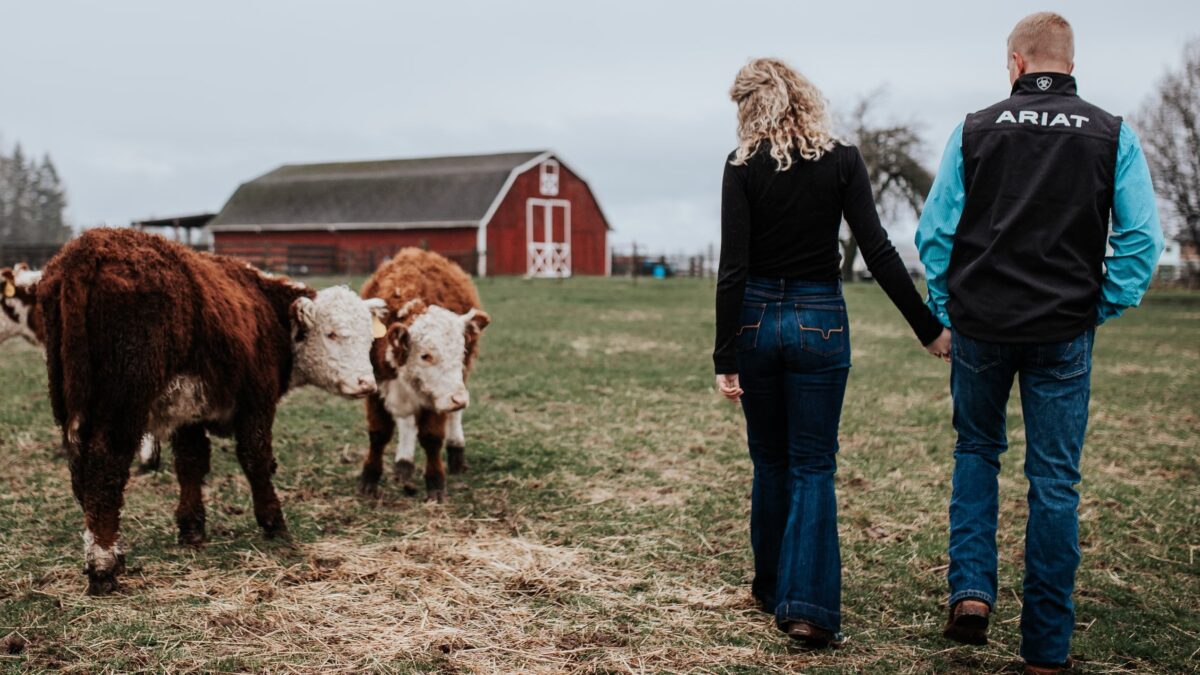Women Leaders: A New Era in Farm Bureau Advocacy
TOPICS
Women in AgricultureGuest Author
Special Contributor to FB.org

photo credit: Bailey Moon, Used with Permission
Guest Author
Special Contributor to FB.org
By Bailey Moon
As a little girl, I would attend local Farm Bureau meetings with my grandparents. I sat quietly, munching on salty diner fries and listening to the stories of our local farm families. At the time, I was naive about the impact those conversations would have on my future.
Fast forward many years, and I now look back and think about the individuals who volunteered and gave their talents to Farm Bureau. While it’s easy to associate farming with the classic “Farmer John,” many of the Farm Bureau leaders who shaped my life were women. In honor of Women’s History Month, it seems fitting that we applaud the women who have impacted the history of Farm Bureau and celebrate the women who are paving the way for the future.
The truth is that this is no longer my grandfather’s Farm Bureau. His Farm Bureau laid the foundation, but farming, advocacy, leadership and the role of women in agriculture have dramatically evolved.
We must learn from our past and grow our efforts to secure a bright future for agriculture and the next generation.
More than one-third of American farmers and ranchers today are women. Having once found their place as caretakers in the home, today women leaders and agriculture advocates are shattering glass ceilings. They are working the land, sorting the cattle, buying the seeds and leading dynamic change at the local, state and national level.
Washington state is a perfect example of how women are impacting the future of Farm Bureau. Currently, six of our state committees are chaired by women, and for the first time in history we have a female president. This is an incredible accomplishment and getting to this point would not have been possible without the leaders who came before us.
Change is inevitable, but embracing change while respecting the past is how we ensure success. We must learn from our past and grow our efforts to secure a bright future for agriculture and the next generation.
That future is accomplished through great leadership. Stepping into leadership roles is one of the ways women have evolved within Farm Bureau. Beyond traditional leadership positions, women are utilizing every tool in the shed for their advocacy efforts.
Social media has also become a vital tool for advocacy, providing a window into the life of farmers and ranchers. Online influencers are vulnerable about the joys and hardships they face daily. Their various media platforms are an outreach tool to consumers, but also provide a network and support system for agriculture advocates.
In sharing directly from the field, women across the country are impacting the agriculture narrative. Influencers like @fivemarysfarms, @thisfarmwife and even Washington’s own @rockingbarhranch share their story daily with thousands of followers who may never step foot on farmland, but have a voice, a vote and a desire to understand where their food comes from. The reality is that everyone eats, and through social media, we can help guide an appreciation for agriculture and those who choose to provide food, fuel and fiber for the world.
Whether standing side-by-side in leadership positions, liking or sharing a post on social media, or networking at a county Farm Bureau meeting, women are leading an agriculture advocacy wave. While I am a product of my grandfather’s Farm Bureau, I look forward to seeing how this new era of advocacy enhances the Farm Bureau in 2022 and beyond.
Bailey Moon is associate director of communications at Washington Farm Bureau. She is a third-generation cattle producer and Farm Bureau member. She and her family raise registered Polled Hereford cattle.
Trending Topics
VIEW ALL